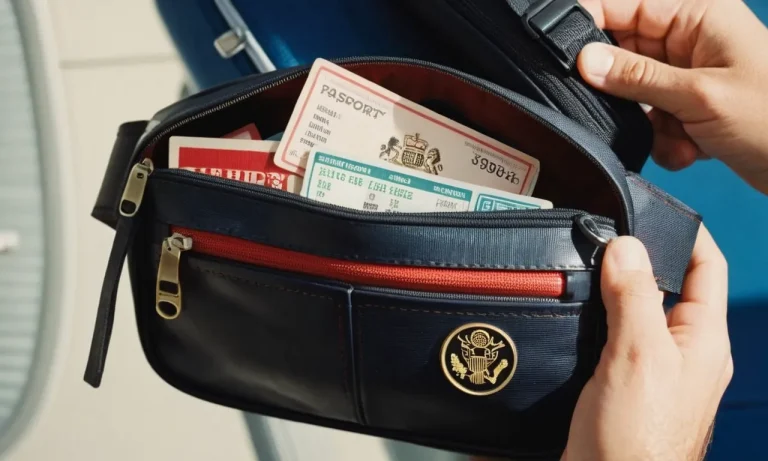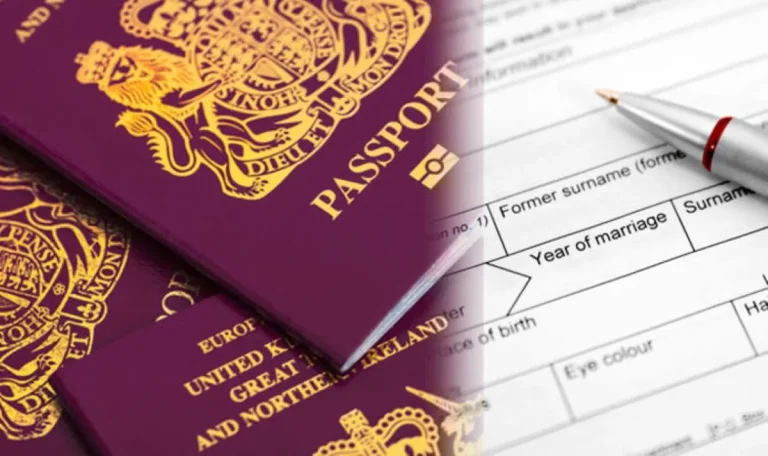You booked a flight months ago and now the airline suddenly moved up the departure time. If you’re short on time, here’s a quick answer to your question:
In this comprehensive guide, we’ll explain the policies around flight time changes and what recourse you have. We’ll outline when carriers can adjust schedules and by how much. We’ll also cover your rights as a customer if a time change won’t work for your trip.
Airline Contracts of Carriage Allow Reasonable Schedule Changes
When booking a flight, passengers often rely on the departure and arrival times provided by the airline. However, it is important to understand that airlines have the right to make schedule changes within certain limits.
These changes are usually addressed in the airline’s contract of carriage, which outlines the terms and conditions of the ticket purchase.
The Purpose of Schedule Changes
Airline schedule changes are typically made for operational reasons, such as aircraft maintenance, crew scheduling, or weather conditions. These changes are necessary to ensure the safety and efficiency of flights.
Airlines strive to provide accurate and reliable schedules, but unforeseen circumstances can sometimes lead to adjustments.
Reasonable Schedule Changes
According to most airline contracts of carriage, airlines are allowed to make reasonable schedule changes. This means that airlines can modify the departure or arrival times by a certain number of minutes or hours.
The specific guidelines for what is considered reasonable may vary between airlines, so it is important to review the terms and conditions of your ticket.
Reasonable schedule changes are typically within a few hours of the original departure or arrival time. For example, an airline may change a flight’s departure time from 2:00 PM to 4:00 PM, which would still be considered a reasonable adjustment.
These changes are often made to accommodate operational requirements or to optimize the airline’s overall flight schedule.
Passenger Rights in Case of Schedule Changes
When an airline makes a significant schedule change that affects a passenger’s travel plans, there are certain rights and options available. Passengers may be entitled to:
- Choose an alternative flight offered by the airline
- Request a refund for the unused portion of the ticket
- Rebook the trip for a later date, depending on availability
It is important to note that these rights may vary depending on the airline and the specific circumstances of the schedule change.
Passengers should contact the airline directly to understand their options and seek compensation if necessary.
Maximum Allowable Change Windows by Airline
When it comes to airline schedules, it’s not uncommon for flights to experience changes. These changes can range from minor adjustments to significant alterations in departure or arrival times.
Understanding the maximum allowable change windows set by each airline can help passengers be prepared and informed about potential schedule changes.
Notifying Impacted Passengers of Changes
When airlines need to change flight times, they have a responsibility to notify passengers who will be affected by these changes.
This notification process is crucial to ensure that passengers are aware of any adjustments and can make the necessary arrangements.
Methods of Notification
Airlines typically use multiple methods to notify passengers of schedule changes. These methods may include:
- Sending email notifications to the email address provided during the booking process.
- Sending text messages to the mobile phone number provided during the booking process.
- Using automated voice messages to call passengers and inform them of the changes.
- Updating the flight details on the airline’s website or mobile app.
By utilizing various communication channels, airlines aim to reach passengers in a timely manner and provide them with the necessary information regarding their revised flight times.
Timeline for Notification
The timeline for notifying passengers of schedule changes can vary depending on the airline and the specific circumstances. In general, airlines strive to inform passengers as soon as possible to minimize any inconvenience caused.
This allows passengers enough time to make alternative arrangements if needed.
Passenger Rights
When airlines change flight times, passengers have certain rights to ensure they are adequately compensated for any inconvenience caused. These rights may include:
- The right to be notified of schedule changes in a timely manner.
- The right to request a refund if the new flight times are unacceptable.
- The right to be rebooked on an alternative flight at no additional cost.
- The right to compensation for any additional expenses incurred due to the schedule change.
It’s important for passengers to familiarize themselves with their rights and to reach out to the airline if they believe their rights have been violated.

Your Options When a Flight Time Won’t Work
So, you’ve booked a flight and just received a notification that the airline has changed the departure or arrival time. This can be frustrating, especially if the new schedule doesn’t fit your plans.
But fear not, there are options available to you when a flight time won’t work.
1. Contact the Airline
The first step is to reach out to the airline and express your concerns about the schedule change. In many cases, they will be willing to accommodate your needs and offer alternative options.
Explain your situation and see if they can rebook you on a different flight that better suits your schedule.
2. Know Your Rights
It’s important to be aware of your rights as a passenger when it comes to schedule changes. Airlines are required to inform you of any significant changes to your flight time, and in some cases, they may be obligated to offer compensation or alternative arrangements.
Familiarize yourself with the airline’s policies and regulations to understand what you are entitled to in such situations.
3. Explore Alternative Routes
If the airline is unable to accommodate your needs, consider exploring alternative routes. This could involve looking for flights with other airlines, checking for connecting flights, or even considering nearby airports as options.
Sometimes, a slight adjustment in your travel plans can make all the difference.
4. Consider Travel Insurance
Travel insurance can provide valuable coverage in situations like these. It can help protect you financially if you need to make changes to your travel plans due to flight time changes or other unforeseen circumstances.
Before purchasing travel insurance, make sure to review the policy carefully to understand what is covered and what is not.
5. Stay Calm and Flexible
Lastly, it’s important to stay calm and flexible when dealing with flight time changes. While it can be frustrating, getting upset or angry won’t necessarily solve the issue.
Keep in mind that airlines sometimes make schedule changes for reasons beyond their control, such as weather conditions or operational issues.
Being patient and open to alternative solutions can go a long way in finding a resolution.
Conclusion
In summary, airlines do have the ability to adjust flight departure and arrival times within defined limits. But significant schedule changes that negatively impact you entitle you to rebooking or refund options.
Understanding your rights as a passenger can help you negotiate a satisfactory outcome when an airline moves up your flight.






